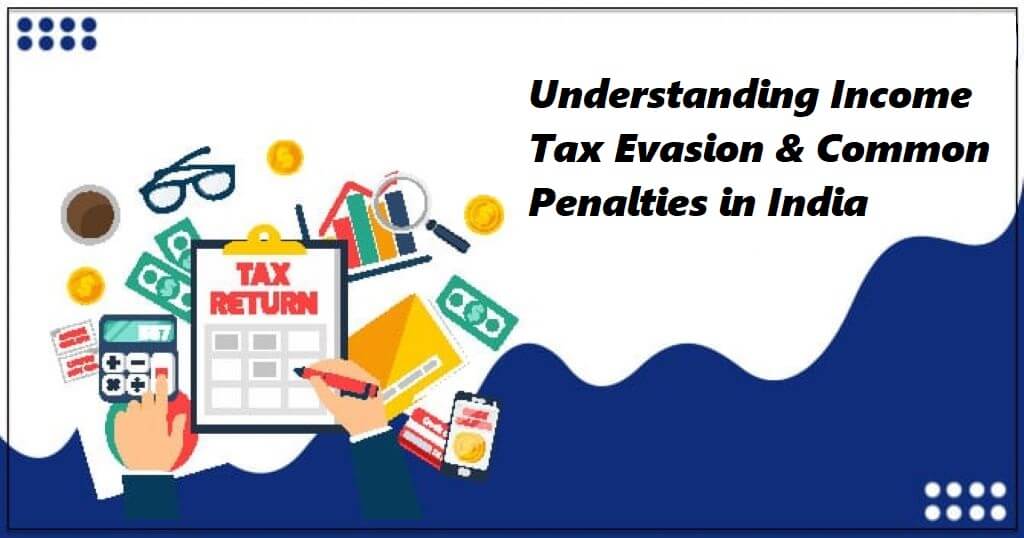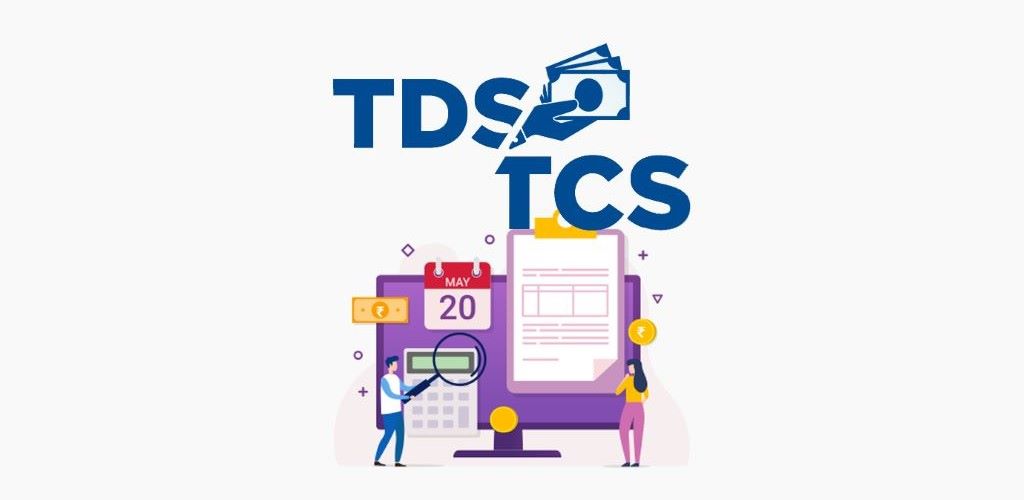No matter what profession you’re in, paying taxes to the government is necessary. People often want to lower their tax burden and the government has established provisions to help them achieve the respective thing. On the other hand, some people choose the wrong path of tax evasion to reduce taxes. Such a process is known as “Tax Evasion”.
In India, tax evasion is a serious offense with harsh penalties and legal consequences. These measures aim to discourage people from participating in such illegal activities. Therefore, it is important to grasp the concept of tax evasion and the associated penalties in India.
In this post, we’ll discuss the meaning of tax evasion, common methods of tax evasion, and penalties, and some important tips to avoid tax penalties.
Meaning of Tax Evasion
Tax evasion refers to the illegal act of intentionally avoiding paying taxes that one is obliged to pay. It can be done by individuals or companies and involves various fraudulent practices such as concealing or falsifying income, inflating deductions without valid proof, or not reporting cash transactions. Tax evasion is a serious offense and is considered a criminal act, resulting in significant penalties.
Similar to any other criminal activity, tax evasion undermines the integrity of the tax system and deprives the government of its rightful revenue. Individuals or businesses found guilty of tax evasion may face severe consequences, including substantial fines, legal actions, and even imprisonment. It is crucial to adhere to tax laws, accurately report income, and fulfill tax obligations to avoid the serious repercussions associated with tax evasion.
How Is Tax Evasion Different From Tax Avoidance?
Let’s take a look at the difference between tax evasion and tax avoidance. Though both sound similar terms, there is still some differentiation between the two. Let’s find out!
| Parameters | Tax Evasion | Tax Avoidance |
| Meaning | Tax evasion is the unlawful act of intentionally avoiding paying taxes owed to the government. It involves deliberately concealing income, providing false information, or engaging in other fraudulent activities to reduce or eliminate tax liability. | Tax avoidance, on the other hand, is the legal practice of minimizing tax liability within the boundaries of the law. It involves employing strategic financial planning techniques and taking advantage of available tax deductions, credits, and exemptions to legally reduce one’s tax burden. |
| Kind of Activity | It refers to actions that break the law. In the context of taxes, it means doing something against the rules set by the government, such as hiding income or lying on tax forms | On the other hand, it refers to the rules and regulations set by the government regarding taxes. It involves understanding and using the options and benefits provided by tax laws to minimize the amount of tax you owe |
| Intent | Under tax evasion, someone purposely and knowingly tries to deceive or cheat the government regarding taxes. | Under tax avoidance, it is about smartly managing your finances to pay the least amount of tax legally possible. |
| Methodology | It means trying to keep money, property, or details about your finances secret from the government to avoid paying taxes on them. | It refers to using legitimate options provided by the government to lower your tax bill. |
| Disclosure | It means that in tax evasion, people often create false or fake documents or records to make it look like they earned less money than they actually did | Under it, it refers to tax avoidance, where individuals or businesses accurately report their income and expenses but use legal strategies to lower their tax bill. |
Common Methods of Tax Evasion and Penalties in India
Here is the list of the common methods of tax evasion and associated penalties along with their charges. Let’s discuss them in detail!
- Late filing of Income Tax Return
One of the common yet popular methods to avoid tax is that if you don’t file your income tax return on time as required by the law, you might get slapped with a penalty of up to Rs 5,000.
- Hiding Income to Avoid Taxes
Another key method behind tax evasion is that some people hide their real income. If you try to hide your earnings to avoid paying taxes, the penalty could be between 100% and 300% of the tax you tried to dodge.
- Not Getting Accounts Edited
Under this method, if you’re supposed to get your accounts audited but you don’t, you could face a penalty of 0.5% of your total sales or turnover, or at least Rs 1,50,000. If you don’t present a report from an accountant when asked, you might face a penalty of Rs 1,00,000 or more.
- Non-Compliance with TDS Regulations
If you’re supposed to collect tax from others but you don’t, you could face a penalty of Rs 10,000. Companies or organizations that don’t file tax reports on time might have to pay Rs 200 per day for the delay, up to the amount of tax they were supposed to collect. They could also face penalties for giving wrong information or not filing reports at all, ranging from Rs 10,000 to Rs 1,00,000.
- Wilful Attempt to Avoid Tax
One of the major methods that come under tax evasion is that many people try to dodge taxes or under-report their income by more than Rs 25 lakh. You could end up in jail for at least six months up to seven years, plus you’ll have to pay a fine.
- Providing Incorrect PAN Number or Not Furnishing PAN Card Number
Last but not least, many people give the wrong PAN details when filing your taxes. It can land you a Rs. 10000 penalty. If you don’t provide your PAN at all, your tax deductions might be higher than they should be, like 2% instead of 10%.
Methods To Avoid Tax Evasion
Here is a list of the common yet effective methods to avoid tax evasion. Let’s discuss them in detail!
- Public Provident Fund (PPF)
One of the best and most effective ways to avoid tax evasion is PPF, which is a government-backed long-term savings scheme that offers tax benefits on contributions and interest earned. Remember that contributions to PPF accounts can be deducted under Section 80C of the Income Tax Act.
- Employee Provident Fund (EPF)
EPF is a retirement savings scheme mandatory for salaried employees in India. All your contributions made towards EPF are eligible for tax deduction under Section 80C.
- Equity Linked Savings Scheme (ELSS)
ELSS is a mutual fund scheme that primarily invests in equities. When you invest in ELSS funds, it qualifies for tax deduction under Section 80C, up to a maximum limit of Rs. 1.5 lakh per financial year.
- Medical Insurance Premium
Under Section 80D of the Income Tax Act, individuals can avail a deduction of up to Rs. 25,000 for health insurance premiums. The deduction limit increases to Rs. 50,000 for medical insurance for senior citizens.
- National Savings Certificate (NSC)
NSC is a fixed-income investment scheme offered by the government of India. Keep in mind that all investments made in NSC are eligible for tax deduction under Section 80C, and the interest earned is taxable.
- Tax-Savings Fixed Deposits (FDs)
Some banks offer tax-saving fixed deposit schemes with a lock-in period of five years. All your investments in these FDs qualify for tax deduction under Section 80C.
- Unit Linked Insurance Plans (ULIPs)
Last but not least, ULIPs are insurance-cum-investment products that offer tax benefits. The premium paid for ULIPs can be deducted under Section 80C, and the maturity amount is tax-free under Section 10(10D).
Final Thoughts
So, that’s a wrap to everything you need to know about tax evasion! Remember that taxes play a vital role in funding important public services and infrastructure that benefit society as a whole. When you strictly adhere to tax laws and report your income, you can actively contribute to the betterment of the community. Furthermore, you can legally minimize your tax liability when you’re aware of tax-saving investments and exemptions.
Frequently Asked Questions
Listed below are the frequently asked questions related to tax evasions.
If you miss the deadline, you can still file your return, but it’ll be late. You’ll have to pay a fee of up to Rs 5,000 for filing late.
No, after paying taxes, you need to make sure you have all the necessary documents, like tax credit statements and TDS certificates. You also have to submit a Return of Income to the Income-tax Department before the due date.
Yes, income tax applies to most types of money you receive unless a specific rule says it’s exempt. Capital receipts, like money from selling property, are usually exempt unless there’s a rule saying they’re taxable.
If you ignore a notice from the income tax department, the officer might make an assessment based on the information they have. They’ll consider everything they know and make a decision about your taxes without your input.
It’s important to follow tax laws because they ensure that everyone pays their fair share to fund government services, like roads and schools. Following tax laws keeps you out of trouble—like paying fines or going to jail—for trying to avoid paying taxes.







